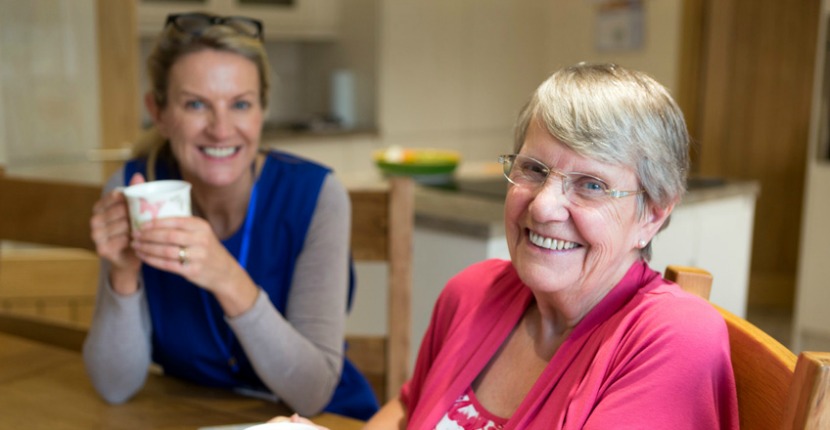Being a caregiver can be physically, mentally and emotionally challenging.
If you’re like most people, becoming a caregiver is a role that you may have had to take on without prior notice or warning – placing the health and well-being of a senior parent or other loved one almost solely in your hands.
If your family member is not receiving in-home care services, this realization can not only be overwhelming, but daunting, as well.
And yet, it’s normal to experience everything from anger and resentment to guilt and helplessness during any part of the caregiving journey.
With all of the responsibilities that you shoulder – meeting the needs of a loved one incapable doing so alone, juggling your role within the nuclear family, and taking time away from the job – it’s easy to forget about taking care of you.
Below are a few ideas FHC found that were designed to keep you healthy in mind, body and spirit, while nurturing and caring for your senior.
Research Your Family Member’s Condition
As a caregiver, you want to arm yourself with as much information as you can about your loved one’s illness. This way, you’re not only able offer them the best possible care, you’ll be more effective in your role, as well.
Know Your Boundaries
One of the things that tends to happen is that caretakers are usually so busy taking care of their loved ones that they forget to set emotional boundaries for themselves.
Emotional boundaries are the limits you set for yourself that help your separate your thoughts, needs and feelings from those of the person in your care.
There’s no need to feel guilty about having boundaries. They are put in place to set up a dynamic of mutual respect between you and your family member, while helping to you avoid becoming burned out.
They help you assess what you can and can’t do so that you are able to clearly communicate these things to your loved one.
If possible, seek a personalized elder care specialist to help out.
Give Yourself Credit For What You Do
We are our own worst critics and caregiving can bring out feelings of negative self-esteem, anxiety, depression and worry.
Try not to give in to those kinds of thoughts. Taking care of a loved one requires a great deal of love, compassion and self-sacrifice – and honestly – not everyone is up to the task.
Instead, replace disallowing sentiments with positive responses and affirmation. Then follow up with actions that reflect your thoughts.
Don’t Forget To Take Care of You
This is probably one the most important things you can do as a caregiver – for both yourself and your loved one.
There are ways you can stay physically and mentally fit such as walking, dancing or gardening that your loved one can also engage in.
Including them in your daily exercise routine, creates a deeper bond, while helping you both maintain a healthy, active lifestyle at the same time.
Schedule Regular Visits to the Doctor
If you notice any changes in sleep, health or appetite, see a doctor right away.
Putting off routine checkups and examines affects your well-being and ability to care for your senior. So it’s important to them that you prioritize your needs as well.




